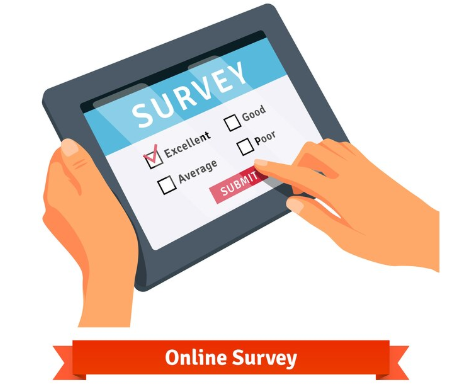Discover the Secrets to Successful Events
In a world where first impressions and experiences matter, successful events—whether corporate, weddings, or galas—depend on meticulous planning, creative execution, and strong marketing. Post-COVID, in-person events surged as human interaction is more valued than ever, boosting the art of event management.
Although, exhibitions and trade shows were evidenced to experience the most economic challenges as conducted in an early 2024 survey, event professionals had every reason to believe that the only way is up when it comes to event management because in 2021, the event sector experienced a US 4.08 billion valuation while in 2022 this rose to US 5.6 billion dollars. That is a whooping 37% increase year-on-year. Although event planning can be a complex, frustrating and lethargic process, if orchestrated conscientiously, success is the end objective. Here, we uncover the secrets to pulling off successful events that leave a lasting impact. We will delve into the essential strategies and insider tips that can transform your event from ordinary to extraordinary.
1. Define Clear Objectives
Before examining the logistics, it's crucial to define what success looks like for your event. Are you aiming to increase brand awareness, generate leads, or create a memorable experience for attendees? Setting clear, measurable goals will help you stay focused and evaluate the success of your event. Before diving into planning, clarify the purpose of your event and make sure that your attendees are also aware of the agenda. Are you aiming to educate, entertain, network, or celebrate? This can be highlighted in the invitation that goes out to the potential guests. In that way your guests also know what to expect and are not left disappointed or worse ill-prepared. Establishing clear objectives will guide every decision, from the venue to the guest list, to the length of the event and thereby ensuring that your efforts align with your goals.
2. Know Your Audience
The foundation of any successful event is a deep understanding of your audience. Knowing who they are, what they value, and what they expect from your event will guide every decision you make. Understanding your audience is crucial in creating an engaging experience. Tailor your content, activities, and atmosphere to resonate with your attendees by gathering insights into their preferences. You don’t want to have your guest wondering why they came to your event or leaving early due to unexpected activities that make them uncomfortable.
The more you know your target audience, the better you can cater to their interests and expectations and that will put you in good standing. This involves conducting thorough market research, creating detailed attendee personas, and continuously engaging with your audience through surveys and social media. Use a mix of content types, including videos, images, and blog posts, to keep your audience interested. Share stories, interviews, and testimonials related to your event.
3. Create a Detailed Plan
A well-chosen theme can set the tone for your event and make it more engaging for attendees. Whether it's a futuristic tech conference or a vintage-themed wedding, your theme should resonate with your audience and be reflected in every aspect of the event, from the invitations to the decorations. Successful events stem from meticulous planning. Procrastination can lead to missed opportunities and increased stress. Starting early allows for better planning and more time to address any issues that arise.
Start by creating a comprehensive checklist that includes deadlines, budgets, and key milestones. Assign tasks to your team members and set regular meetings to ensure progress. By keeping organized and staying on top of coordination, you can prevent potential issues before they arise. Effective event planning requires a detailed timeline and a comprehensive checklist. This includes everything from booking the venue and securing vendors to managing registrations and coordinating logistics. Utilizing project management tools can help keep everything on track and ensure that no detail is overlooked. Share teasers, behind-the-scenes content, and countdowns to generate excitement. Highlight key speakers, performers, or unique features of the event
4. Budget Wisely
Establish a realistic budget that reflects your event's scale and objectives. Allocate funds judiciously among various categories such as venue rental, catering, entertainment, and marketing. Underestimating costs or not having a clear budget can lead to financial shortfalls. Always plan for unexpected expenses and keep track of all costs. Always factor in a contingency fund for unexpected expenses. Monitoring your budget throughout the planning process will help you stay on track and avoid overspending. Not having enough staff can lead to inefficiencies and poor attendee service. Ensure you have adequate personnel to handle all aspects of the event.
5. Choose the Right Venue
The venue sets the tone for your event. Consider location, capacity, accessibility, and amenities when making your choice. Whether it’s a grand ballroom or a cozy outdoor space, ensure it complements your theme and offers a comfortable environment for your guests. The venue should be accessible, appropriately sized, and equipped with necessary amenities. A poor choice can negatively impact the attendee's experience. Don't forget to consider the logistics of set-up, audio-visual equipment, and catering options available at the venue.
6. Engage with Effective Marketing
No matter how well-planned your event is, it won't succeed if no one shows up. Create a marketing strategy that includes social media promotion, email campaigns, and partnerships. Use eye-catching visuals and compelling content to attract attention. Early registration incentives and engaging countdowns can also encourage attendance. To ensure a high turnout, it's essential to have a robust marketing strategy. This involves leveraging multiple channels such as partnerships with influencers or sponsors.
Creating buzz around your event through engaging content and interactive campaigns can significantly boost attendance. Don’t ignore competing events happening within the same area. Failing to check for other events happening at the same time can affect attendance. Always research and choose a date that doesn't clash with other major events. Organize contests or giveaways to increase engagement and spread the word about your event. Offer free tickets or exclusive merchandise as prizes.
7. Focus on Attendee Experience
An unforgettable event hinges on the attendee experience. Think through every detail: from registration to entertainment. Ensure smooth check-ins, provide clear signage, and create opportunities for networking. Incorporate interactive elements like live polls or Q&A sessions to engage your audience further and make your event more memorable. Personalized touches, such as welcome gifts or custom itineraries, can make a significant impact.
Not understanding your audience can result in low engagement and attendance. Additionally, providing excellent customer service and addressing attendee needs promptly can leave a lasting positive impression. Leveraging social media for event promotion and engagement is crucial. Live streaming, event hashtags, and attendee-generated content can boost visibility and interaction
8. Leverage Technology
In today’s digital age, technology plays a pivotal role in event management. Utilize event planning software to streamline tasks, manage registrations, and track budgets. Using the right technology can significantly enhance the planning, execution, and overall experience of your events. A slow or disorganized check-in can frustrate attendees and create a bad first impression. Use technology to streamline the process. Incorporate social media tools for real-time engagement and feedback during the event.
Consider live streaming for hybrid events to reach a larger audience. Event management software like Graviti AMS helps streamline the entire event planning process. It offers tools for registration, ticketing, attendee management, and analytics. Eco-friendly solutions, such as digital ticketing and virtual event platforms, help reduce the environmental impact of an event.
9. Prepare for the Unexpected
No event is immune to unexpected hiccups. Have contingency plans in place for various scenarios, such as inclement weather or technical difficulties. Failing to test AV equipment or not having a backup plan for technical issues can disrupt the event. Always test equipment beforehand and have technical support on standby. Designate a crisis management team that can address any issues swiftly, ensuring minimal disruption and keeping everyone informed.
10. Follow Up and Gather Feedback
After the event, the journey doesn’t end. Follow up with attendees to thank them for participating and gather feedback through surveys. Post-event feedback is crucial for improvement. Failing to collect and act on feedback can result in repeated mistakes. This will not only nurture future relationships but also provide valuable insights for improving your next event. Analyzing what worked well and what didn’t will refine your approach and set the stage for even greater successes.
Following up with attendees through thank-you emails, surveys, and social media posts can help you gather valuable feedback and build lasting relationships. Analyzing the data collected can also provide insights for improving future events. Post event recaps, including photos, videos, and key takeaways. This helps maintain momentum and keeps the conversation going. It’s also vital to ensure that feedback is gathered during the event, by assessing the crowd’s temperature – whether they are engaging or excited can also assist event organizers in evaluating the success of the event.
By following these secrets to successful event planning, you can create an event that not only meets but exceeds expectations. Crafting a successful event requires a blend of creativity, strategy, and careful execution. By understanding your objectives, knowing your audience, and meticulously planning every element, you can create memorable experiences that resonate with attendees long after the event concludes. Embrace these secrets and watch as your events transform from ordinary to extraordinary. Happy planning!






